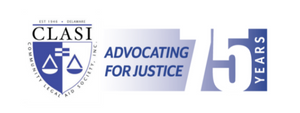Community Legal Aid Society, Inc. represents individuals in legal matters relating to public benefits. CLASI advocates represent clients concerning the following types of public benefits:
- Social Security/SSI;
- Food Stamps;
- Medicare/Medicaid;
- TANF (formerly known as Welfare);
- General Assistance.
In matters related to Food Stamps, Medicare/Medicaid, TANF and General Assistance CLASI represents clients that are denied these upon application for assistance as well as clients whose assistance has been terminated. In addition, we represent clients enrolled in TANF in instances where DSS has imposed sanctions upon the client.
In SSI cases, we represent clients whose benefits have been terminated. We do not represent people who are turned down after their initial application for SSI benefits. We ask that clients apply for “reconsideration” of the initial decision. If a client is turned down after the Reconsideration Stage, we may represent the client on an appeal to an Administrative Law Judge if the client’s case has merit.
We hope that the information provided below is useful to you. However, when confronted with a legal problem it is always wise to consult with an attorney. The information provided below is not intended nor should it be used as a substitute.
